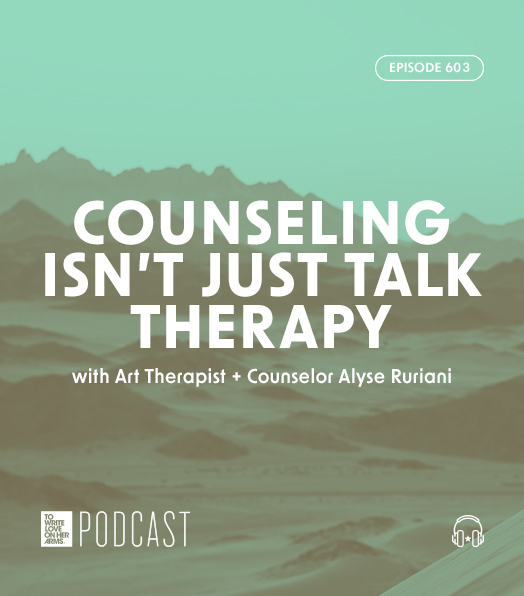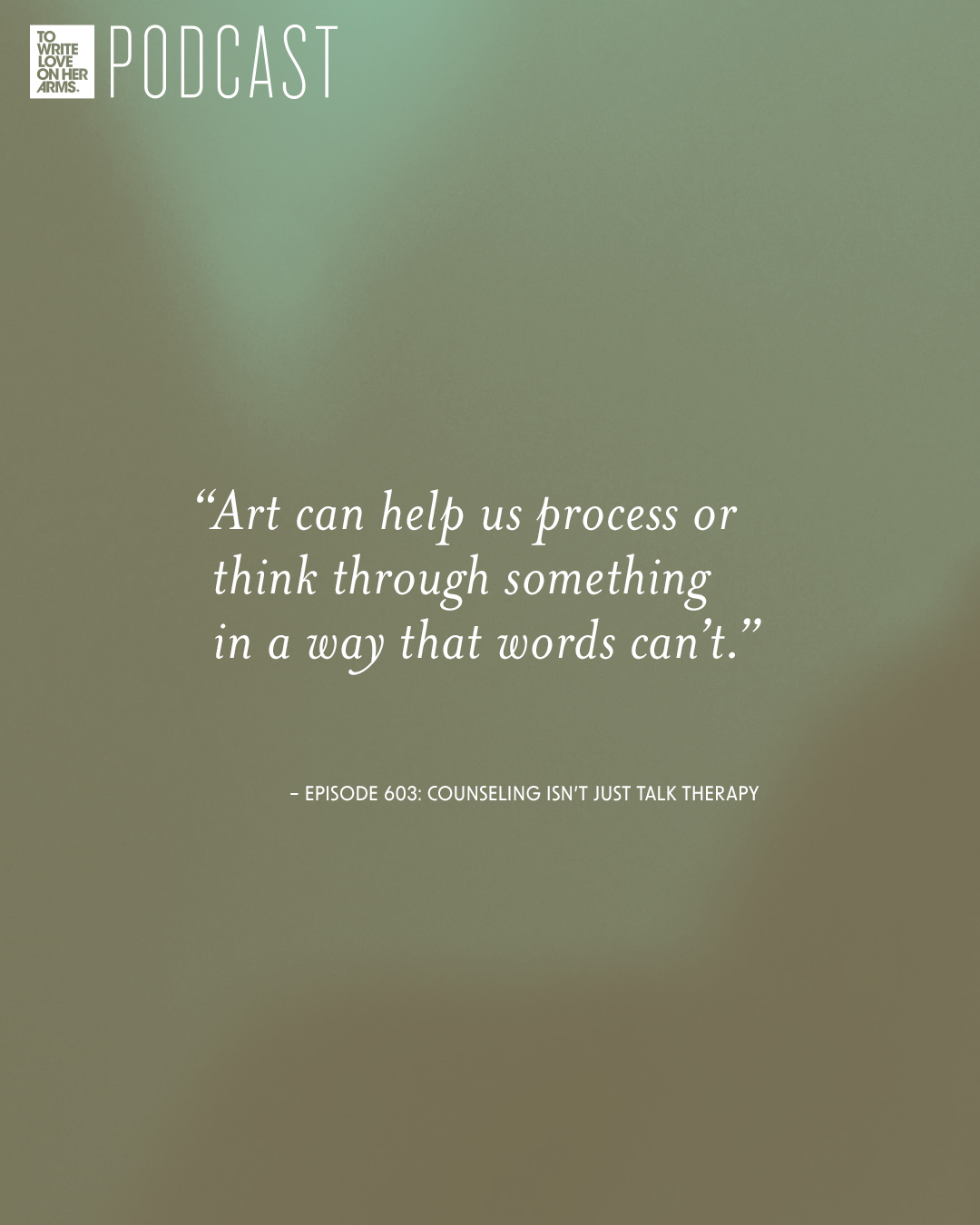
May 23, 2023
Counseling Isn’t Just Talk Therapy
with Art Therapist + Counselor Alyse Ruriani


May 23, 2023

Mental Health Month is upon us and we’re in the midst of our Show Up For Yourself campaign which focuses on finding 20 minutes a day to care for things that relate to your heart, mind, body, and community. This can look like gentle movement, calling a friend, journaling, and deep breathing. While we’re putting an emphasis on small, accessible, and tangible ways that we can all show up for ourselves, there’s obviously a bigger avenue for us, if we have the resources, to tend to our mental well-being: Therapy.
So that’s what we’re talking about today. But this isn’t just about the rather cliche vision we all have when we think about therapy. A shrink sitting upright in a chair taking notes across from their patient who’s sharing their thoughts. Of course, there’s great value to talk therapy, but there are more options. And that’s a good thing because therapy is not one-size-fits-all. We all have varying experiences, varying abilities, and varying needs, so naturally the therapy that suits us best might look different than what we are familiar with and what TV shows and films project out into the world.
In today’s episode, we have the honor of exploring alternative therapy options, like Art Therapy and Dialectical Behavior Therapy in particular, with the guidance of the wonderful and creative Alyse Ruriani.
Alyse Ruriani (she/they) is a queer femme art therapist, licensed professional counselor, illustrator, and person with lived experience. She holds a Bachelor of Fine Arts in Graphic Design and a Masters in Art Therapy and Counseling. Alyse’s work aims to communicate information, provide tangible tools, and validate the human experience through engaging illustrations and designs. They live in a colorful apartment in Chicago with their black cat/co-therapist Boo. When Alyse is not working, you can likely find her swimming in some body of water, making art with friends, or hyper fixating on some new ideas.

“There also are ways that I know art can help me process or think through something in a way that words would not be able to help me get there. And so I don't look at it as like, one's better than the other. But that one might be better than the other for certain people. There are people who may really struggle with verbal processing, and so art could be a more beneficial way of exploring that.”
This episode of the TWLOHA podcast was hosted by Chad Moses and produced by Rebecca Ebert. Music assistance was provided by James Likeness and Ben Tichenor.

Sign up for our newsletter to hear updates from our team and how you can help share the message of hope and help.
Join our list